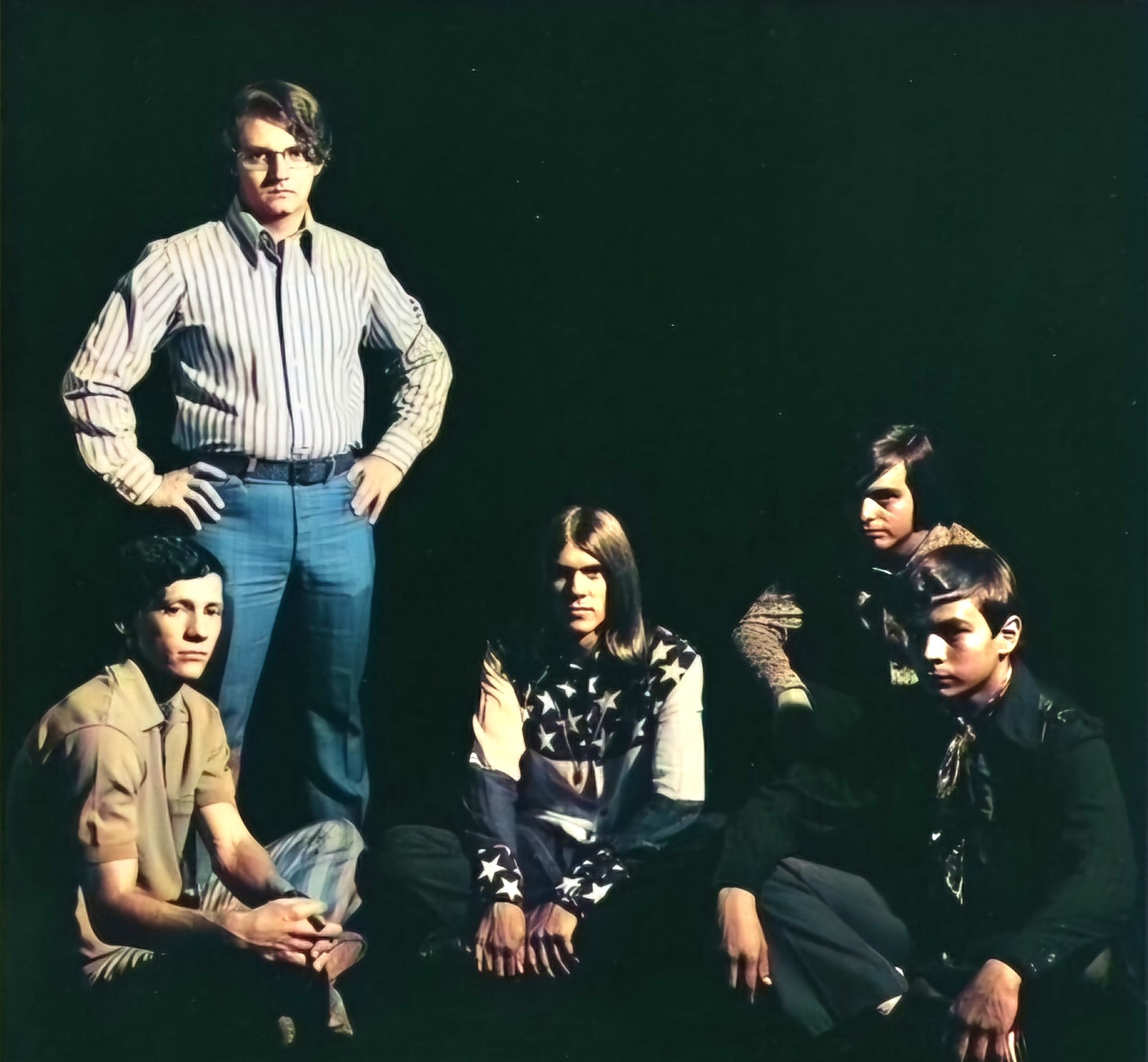Bitter Creek | Interview | “Plastic Thunder”
Bitter Creek was a psych-rock band hailing from Atlanta, GA. Their sole single, ‘Plastic Thunder’ (with ‘Behind The Smiles’ on the B-side), was laid down in late ’69 and saw the light of day in 1970.
The lineup featured James Channell on keyboards, Johnny Brewer on bass, and Danny Garrett on drums, Gary Sizemore shredding on lead guitar, Tommy Kilby delivering raw, raspy vocals. ‘Plastic Thunder’ erupts with a weighty, fuzz-laden atmosphere, featuring a menacing riff and a throat-tearing chorus that fuses Deep Purple’s somber heaviness with The Who’s frenzied psychedelia. The B-side, ‘Behind The Smiles,’ maintains the mid-tempo psych/hard rock rhythm with booming bass, scorching fuzz guitar solos, and rugged vocals. Released in a limited edition of 500 copies, this underground treasure has secured its place in the heavy psych-rock legacy for its fiercely raw and aggressive sound.
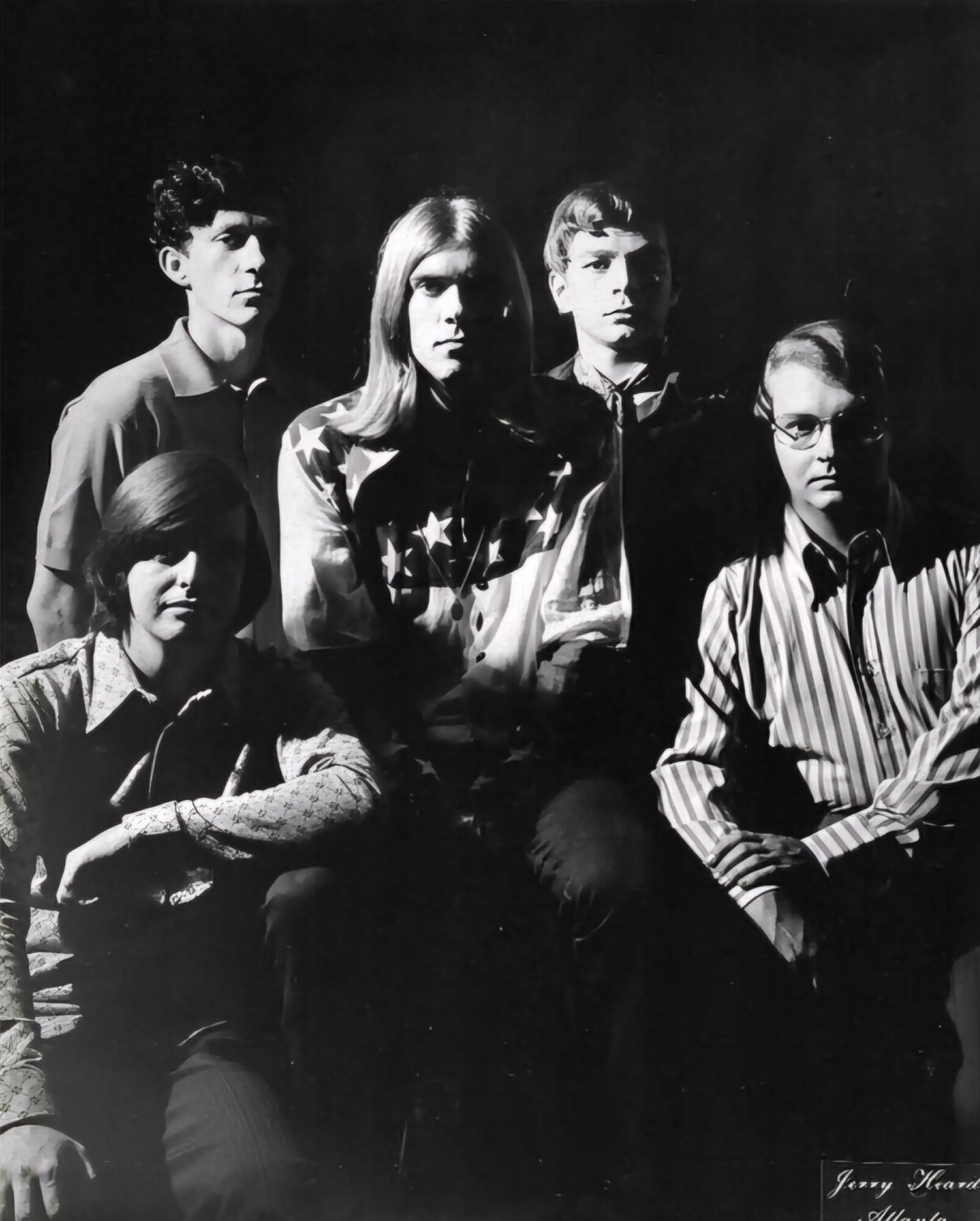
“This was a special time in history”
It’s wonderful to have you here. How do you feel about the continued discussion of Bitter Creek so many years after the release of its sole single?
Danny Garrett: Good Afternoon Klemen, thank you for hosting me in this musical journey. Frankly, I was shocked to discover the enduring popularity of this record and its song among young artists. It’s inspiring to see them exploring these influences from long ago.
Were you surprised when your song was featured on the Brown Acid compilation? How did that come about?
Not only surprised but amazed by how it happened. I stumbled upon a post on Facebook featuring the single, asking for information about the record and the song. After a double take, I realized I was looking at the first record I ever recorded.
The release was in 1970, but we recorded it in 1969.
I reached out to the record company, “Riding Easy,” in LA and briefly shared the history, mentioning that, to my knowledge, I was the last surviving member who played on or produced the record.
I was informed that about 12 bands were covering ‘Plastic Thunder.’
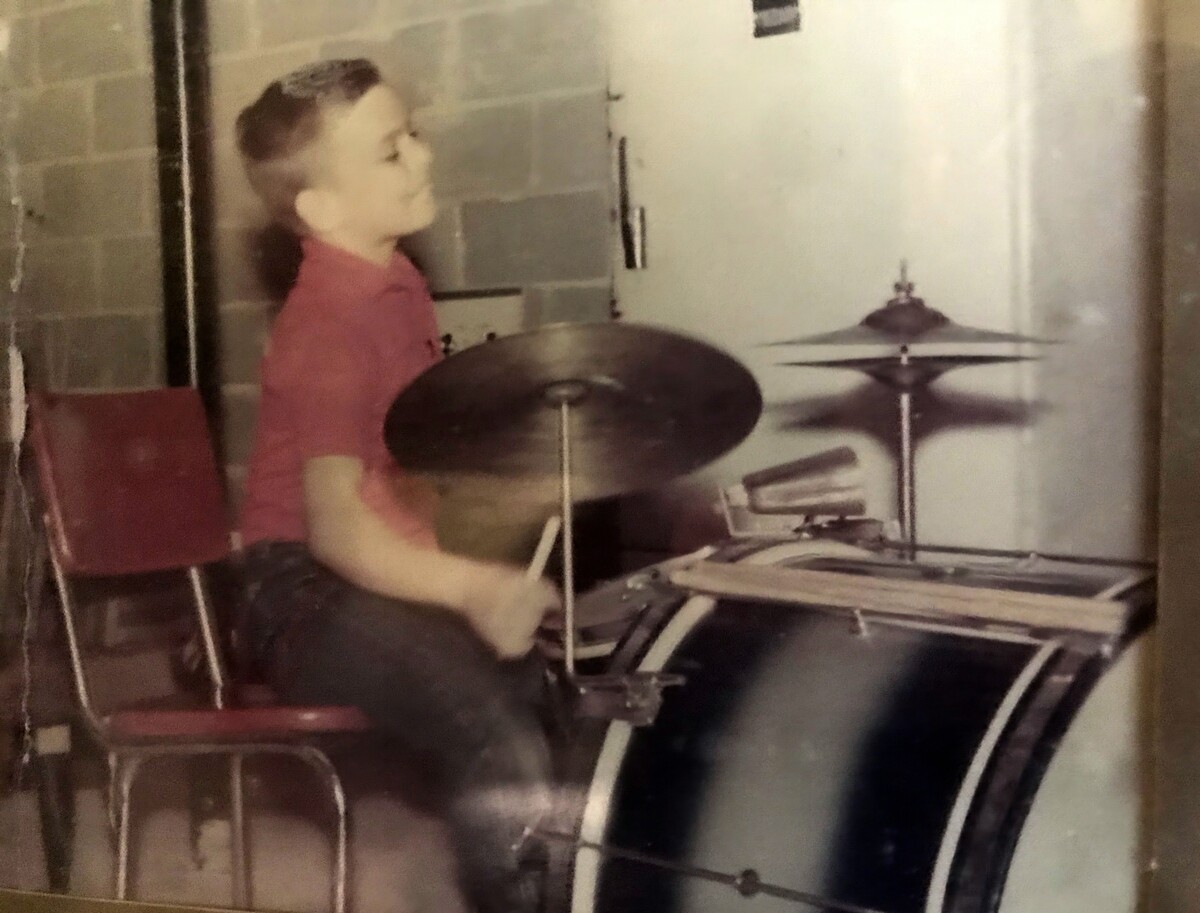
Would you like to discuss your upbringing? Where did you grow up, and what was it like for you? The USA was a different place back then, wasn’t it?
Boy, it sure was. I grew up in the state of Georgia and moved around until we settled in the metro Atlanta area. We lived downtown Atlanta in the late 50s while my dad was in college. He was an engineer for 9 years before transitioning to law practice in the early 70s, which he pursued for the rest of his life.
How did you first get interested in music, and what would you say were some of the early influences that got you interested in music?
From an early age, I was mesmerized by the radio and songs, the groove and backbeat that sounded like a shoe being slammed on the floor. AM radio was alive and well, and it was always on in our house. We moved to Tucker, GA in 1964. I was the new kid a lot in those days but had already started playing drums. I would practice to 45 RPM singles on a cheap phonograph turned wide open. Music was exciting, fresh, and experimental.
The first time I saw The Beatles, I knew what I wanted to do. I stayed on top of all the other groups and trends that followed them. This was a special time in history. I knew then what I know now: “nothing lasts forever.” I was lucky to get that education from great writers and musicians.
When did the decision to start the band come about?
In the sixties, bands were everywhere, and they were all great! That passion to play was everywhere for almost two generations.
Bitter Creek was a collective of two spin-offs, “Candy Soul” and “The Detours.” We were all in rival bands around the Atlanta and SE college circuit. Candy Soul asked me to be their drummer. They were managed and worked teen clubs (very popular in those days), as well as high school dances, proms, and occasional festivals. I was 15 and had a paying gig.
Were you in other bands before Bitter Creek began?
In 1964, my friend and I were riding our bikes around the area when we heard music coming from a far-off location. We followed the sound to a farmhouse where we heard a live version of British Invasion and pop influences of that era. We were brave and knocked on the front door, and we were invited into a room full of teenagers, juniors, and seniors in high school. We were all of 12.
They asked, “Are you guys musicians?” My friend said, “Yeah, play for them, Danny!” So, being a Buddy Rich fan, I regurgitated some riff I remembered from The Tonight Show. The place got quiet, and they all left the room.
I looked at my friend and said, “Let’s get out of here before they kick our ass.” About that time, they re-entered the room and said I was their new drummer. They fired their old drummer on the front porch. I played with “The Detours” for five more years before joining “Bitter Creek.”
When was Bitter Creek officially born? What’s the story behind the band name?
We formed in 1969. We knew we wanted to change the name, Candy Soul. Bitter Creek kind of fit our aggressive guitar/drums persona.
What did your repertoire consist of early on? Did you play a lot of shows? What are some bands you shared stages with?
We covered early versions of Three Dog Night, The Guess Who, Crosby, Stills, and Nash, Joe Cocker, Santana, Grand Funk, and probably most groups from the Woodstock era. We bounced between a 4- and 5-piece band in those days, with or without a keyboard player. We liked songs off the mainstream or “underground” FM radio scene in those days. FM was cool in those days, with innovative songs and sounds, very experimental. Groups on those stations are now legendary.
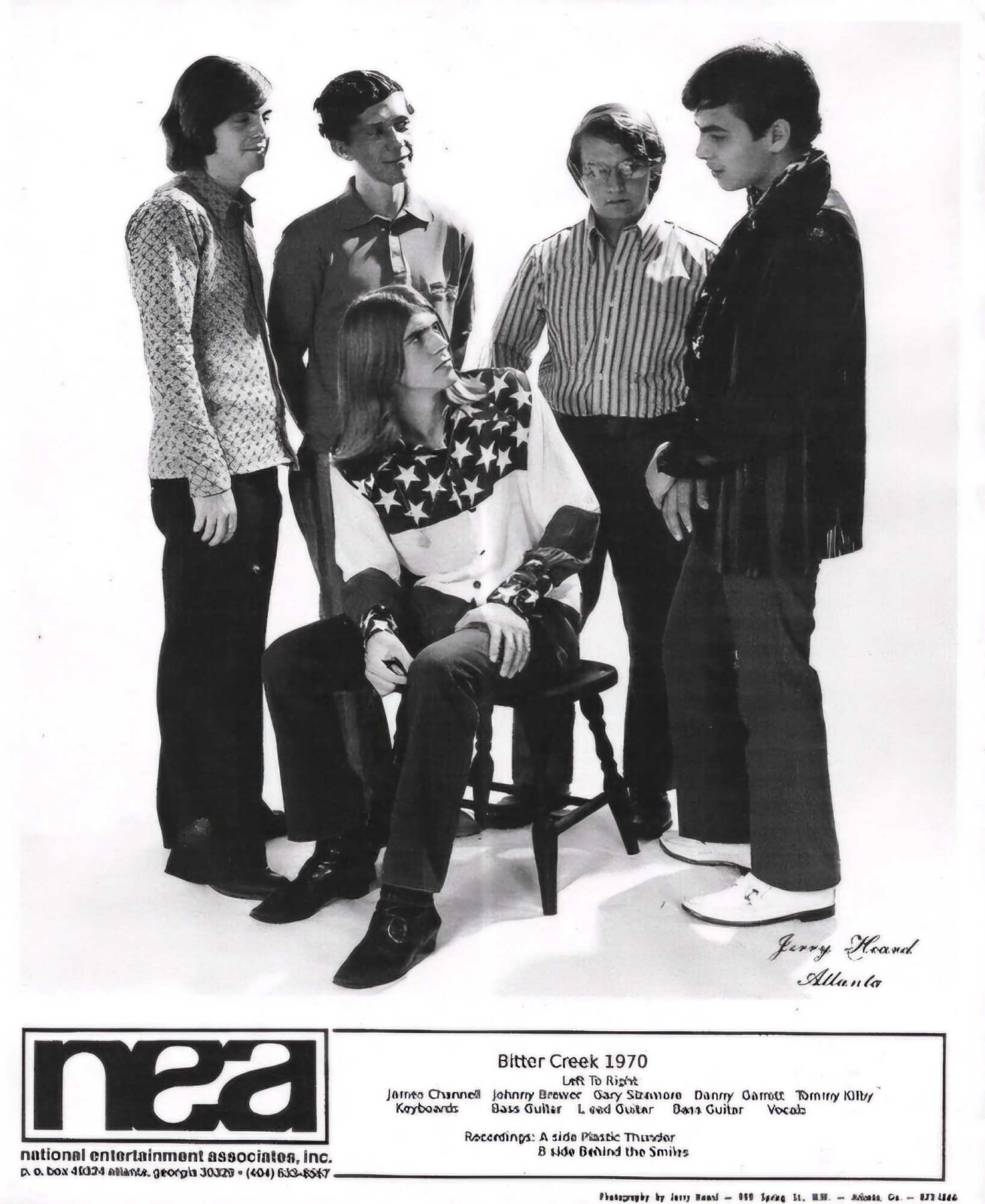
Tell us about your instruments, amplifiers, and other gear you had in the band.
We used Fender, Ludwig, Gibson, and “Kustom” amps with the roll-pleated wrap on the cabinets. Our keyboard player had a big Hammond B3 and a Leslie that weighed more than the entire band. Loading this thing around was life-threatening.
When did the band begin playing together, and for how long were you together?
We were together for two years in the Bitter Creek form. I was pulled away from music, then the band broke up.
So, for the next nine years, I surrendered to corporate America and became a sensei in Tang Soo Do.
Did you have a manager?
Yes.
What are some of the most memorable shows you played?
We did a lot of community events and college gigs in those days. High school proms and charities were always fun. Almost any opportunity was welcomed when you’re young and full of energy.
What was the craziest show you ever did?
That’s a tough one; too many were crazy. Bitter Creek didn’t do anything too outrageous, but later bands in my career were pretty crazy.
Tell us about the recording of ‘Plastic Thunder’ / ‘Behind the Smiles,’ released via Mark IV. Was this a self-release, or did the label actually invest in recording this single? Did you get any local airplay or press when the single was out, or was it more of a 45 to be sent to labels that might be interested in signing you?
We had regional play from the record and pushed ourselves for the most part. In the 60s and 70s, there were great bands everywhere, and many of them were recording. We had backing from our manager and Mark IV Productions, which was a privately owned independent label.
We shopped several songs before choosing ‘Plastic Thunder’ as the A-side. The B-side was written by Tony Brown, the band’s raspy lead singer.
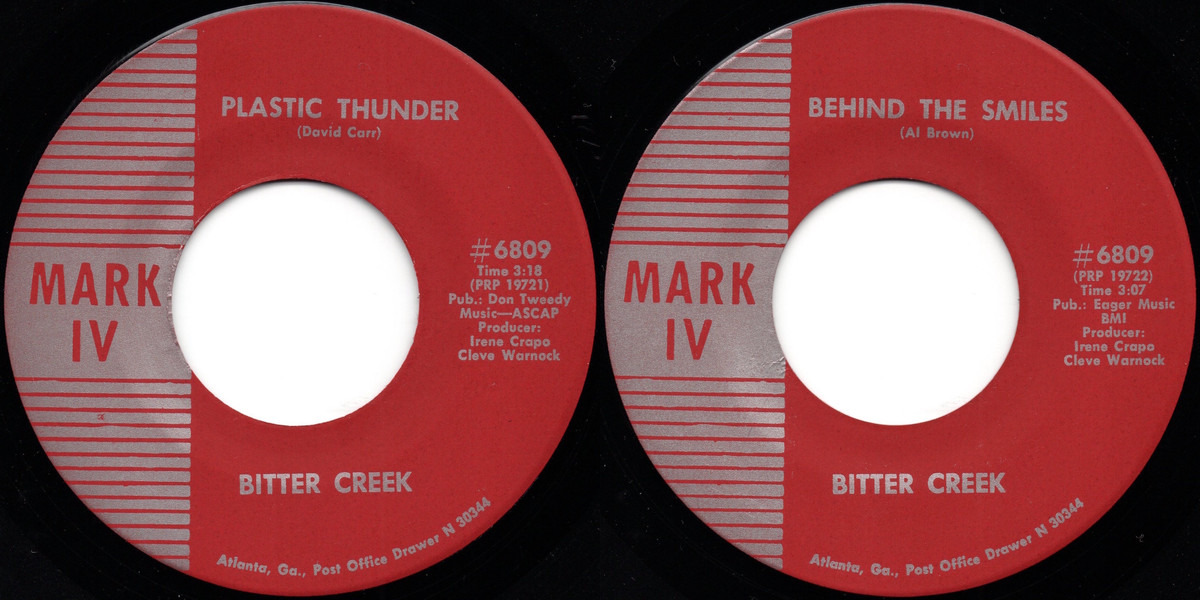
The tracks are extremely heavy. Was that the original plan?
Yes, we wanted that hard rock aggressive feel. We all loved rock on the funky side, particularly as the culture evolved with trios to bands like Chicago and Blood, Sweat & Tears.
Where did you record it? What kind of equipment did you use, and who was the producer? How many hours did you spend in the studio?
At a private estate in Marietta owned by the Mark IV producer.
Please share your recollections of the sessions. What were the influences and inspirations for the songs recorded?
I remember being 15 years old and living a fantasy come true. It was surreal to me, sitting there behind my kit with all my bandmates sitting in the round. We were cutting it in real-time with no isolation, raw as it comes.
What was the songwriting process like for the band? What inspired the songs?
Tony had songs of his own; the rest were shopped. Tony left the band and was replaced by Tommy K, so our lead vocal identity changed drastically. Tommy was smoother, which opened the door to more diverse material.
Were you inspired by psychoactive substances like LSD at the time of writing the album?
Well, I can say my curiosity was sparked with hash the first time, followed by various crops of weed. I must say it was inspiring but many times delusional. You might think you’re tighter than you are. Psychedelics came much later for me—interesting, fun, but not reality.
What followed for the band after the single was out?
We played our gigs, signed a few autographs, and grew older.
Was there a plan to record more back then? Is there any unreleased material or material that you didn’t record back then but were newly written at the time?
Collectively, we did, and later I recorded dozens of records from 1976 to the mid-eighties after the band went its own way.
Did any member participate in other bands back then? Or later in the 70s?
They did prior to our project. I went pro in 1980. I retired from design drafting and joined a local Atlanta band, the Balls Brothers.
The rest of the band scattered in different directions, and I stayed in touch with a few of them.
What occupied your life later on?
I’ve been a full-time musician since 1980.
From 1971 to 1976, I didn’t own a drum set. Then, trying to scratch the itch, I joined a southern boogie band with a borrowed drum kit.
The guy I grew up with showed up at a gig I was doing and asked me what the hell I was doing. I told him about my life, and he basically told me to stop messing around with this white-collar stuff and make some records with him and his partner.
So I bought a drum kit, put it under my landlady’s storage bin, and practiced two hours a day for two years, relearning what was the best of me. Around 1978, the Balls Bros asked me to join their band, and I did. Two years later, I quit my job and became a drummer again.
Did you stay in touch with members all these years?
They’ve all passed on but me.
Looking back, what was the highlight of your time in the band? Which songs are you most proud of? Where and when was your most memorable gig?
Hard to say. For me, it was the beginning of being a working musician. I wasn’t out of high school yet, but here I was playing in front of large crowds and hot girls. Drums were always a passion that would stay with me all my life. I knew I could take that anywhere later in my life.
What are some of your favorite memories from Bitter Creek and the 60s/70s in general?
Just playing together in that time of our history.
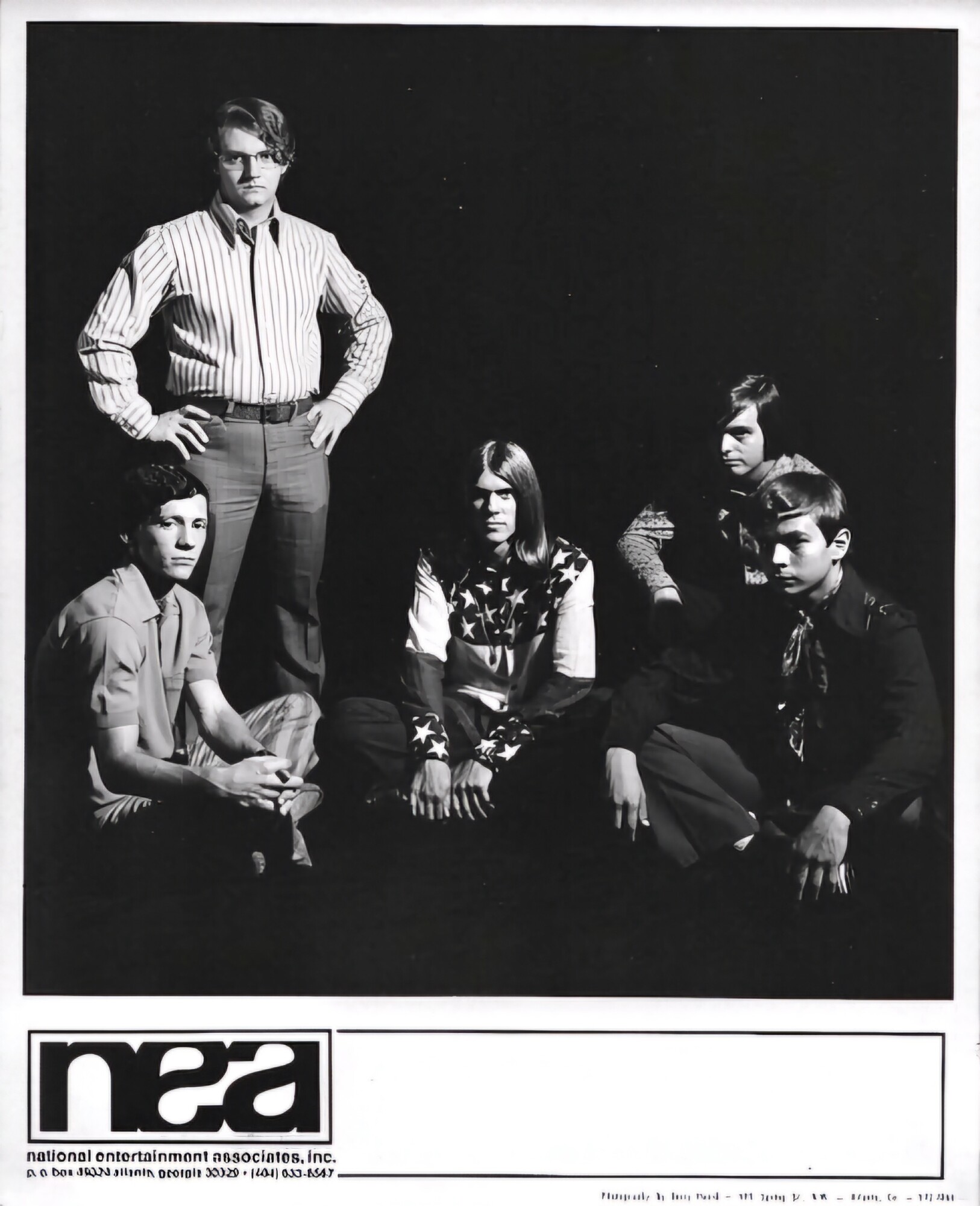
What are some of the most important players that influenced your own style, and what in particular did they employ in their playing that you liked?
I grew up listening to black music, soul, and R&B in my early childhood. Then Buddy Rich got my attention.
All the sixties rock innovators were my influences: Dino Danelli, John Bonham, Ginger Baker, Ian Paice, Mitch Mitchell. Then all the 80s and 90s contemporary drummers: Simon Phillips, Sonny Emory, Vinnie Colaiuta—a huge list I can’t complete.
What currently occupies your life?
I’m a full-time musician. I play drums and own a show band, “The American Flyers.” We are a base of six performers but also use a three-piece horn section for some shows. It’s very high-energy and features a collection of three generations of hits. We play wherever we are called. You can find us on the internet and Facebook.
I’ve been teaching private drum lessons for 40-plus years and wrote my own textbook.
Marketing, performing, and teaching in summary.
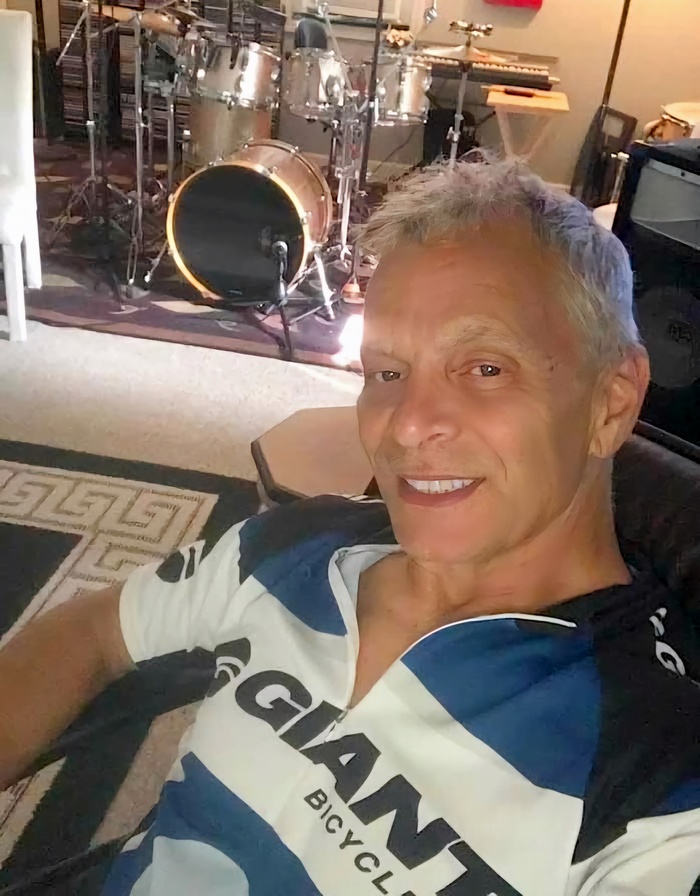
Thank you for taking your time. The last word is yours.
Thank you for lending me your ear. There’s so much more to the stories, particularly this one. I hope my answers were not too long-winded and at least entertaining. Thanks again and be blessed.
Klemen Breznikar
The American Flyers Band Official Website
Permanent Records Official Website / Facebook / Instagram / Twitter / Bandcamp
RidingEasy Records Official Website / Facebook / Instagram / Twitter / Bandcamp / Tik Tok / YouTube

